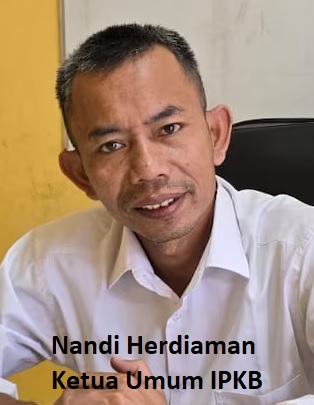After the government and the DPR passed the Law on the Comprehensive Economic Partnership Agreement (CEPA) between Indonesia and the European Free Trade Association (EFTA) countries in April, its implementation will take effect on November 1, 2021. EFTA is a trading bloc in the European region consisting of Iceland, Liechtenstein, Norway and Switzerland. Indonesia's comprehensive agreement—EFTA CEPA covers trade in goods and services, investment, and capacity building. The construction of this agreement is supported by facilities and capacity development to ensure the interests of Indonesia.
As a result, various Indonesian products will gain market access in the form of concessions on the elimination and reduction of tariffs, so that they will be more competitive in the EFTA market (UNCTAD, 2021 Trade and Development Report).
Regarding free trade, Anne Krueger in a Policy Paper entitled Trade creation and Trade Diversion under NAFTA - National Bureau of Economic Research (1999) states that free trade does not only create growth in industrialized countries but also in developing countries that adopt free trade. and integrates with the system as a whole.
It is reported that since November 1, 2021, Iceland has removed import duties for 94 percent of its total tariff posts. Norway 91 percent, Switzerland and Liechtenstein 82 percent each. Meanwhile, various Indonesian products that receive zero percent tariffs on the EFTA market include palm oil, fish, and gold.
Likewise with the products of the manufacturing industry, including textiles, electrical equipment, and machinery. Meanwhile, products from EFTA countries that meet the criteria will also be granted tariff elimination by Indonesia.
Based on data from the Ministry of Trade (2021), in 2020 the total trade between Indonesia and EFTA was US$3.3 billion, an increase of 92.62 percent compared to 2019 worth US$1.7 billion. In 2020, EFTA was ranked as the 15th destination for Indonesia's exports with an export value of US$2.4 billion, an increase of 195.72 percent compared to 2019 which was only US$829.4 million.
In the period from January to August 2021, Indonesia experienced a non-oil and gas trade surplus with EFTA countries of US$609.8 million. This achievement was obtained from Indonesia's exports to EFTA which reached US$1.11 billion and imports worth US$504.5 million.
Indonesia's trade to EFTA countries is dominated by Switzerland with exports of 96 percent (US$1.07 billion) of total national exports to the block. Imports accounted for 71 percent (US$358.9 million) of Indonesia's total imports from there. Indonesia's largest non-oil and gas export commodities to EFTA countries in 2020 include gold, jewelry, metal waste, optical fiber, and bulldozers.
Meanwhile, Indonesia's imports from EFTA include explosives and ammunition, watches, precious metals, and fish. The investment of EFTA countries in Indonesia in 2020 reached US$137.95 million with 622 projects.
Strategic steps to optimize the implementation of the Indonesia-EFTA economic partnership agreement should take into account global dynamics. These dynamics are turbulence, uncertainty, complexity, and ambiguity (volatile, uncertain, complex, ambiguous / VUCA).
For that, several things need to be considered. First, socialization and business forums are needed by the Ministry of Finance and the Ministry of Trade regarding the three supporting regulations that have been issued in conjunction with the implementation of the Indonesia-EFTA partnership.
The three regulations, namely the Regulation of the Minister of Trade No. 58 of 2021, Minister of Finance Regulation No. 152/PMK.010/21, and Minister of Finance Regulation No. 122/PMK.04/2021. The socialization includes import policies, and improving the efficiency of import-export procedures, especially for fresh production such as fishery and other marine products, as well as Indonesia's participation in world supply chains.
Second, empowering the Free Trade Area Center owned by the Ministry of Trade, which is an information center for business actors who want to obtain information on market access for trading partners. Third, Indonesian palm oil products are often judged not to meet the criteria in the European market, so this is a discriminatory act.
So, Indonesia needs to increase the competitiveness of palm oil products according to the sustainable palm oil trade standards from the related countries. It is hoped that Indonesian palm oil products will gain full market access in Iceland and Norway.








